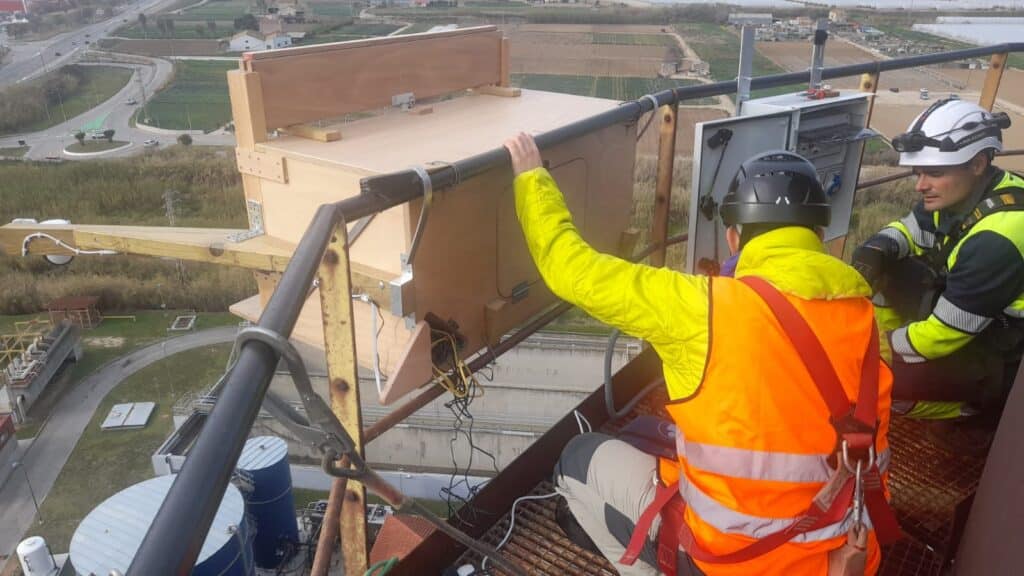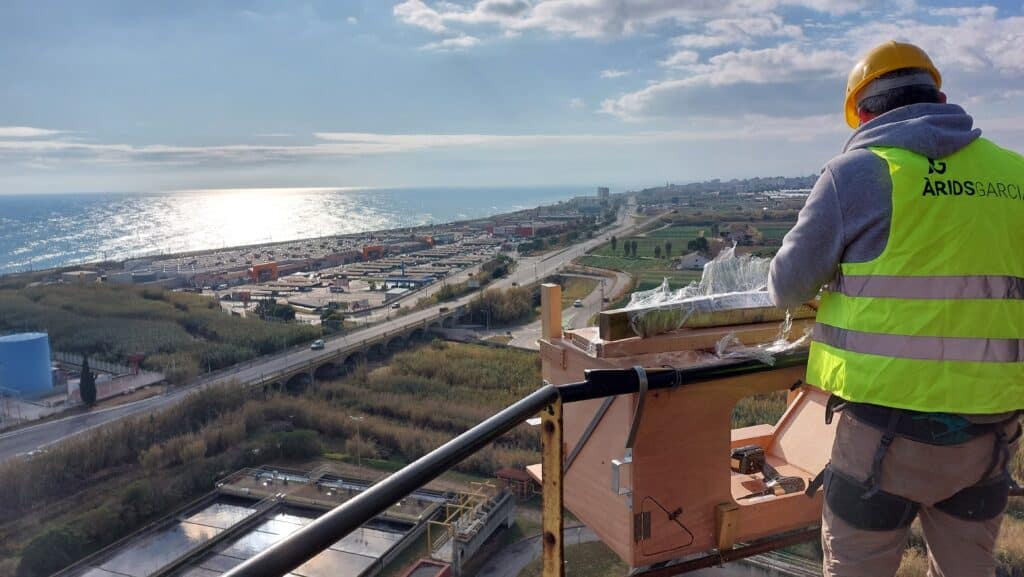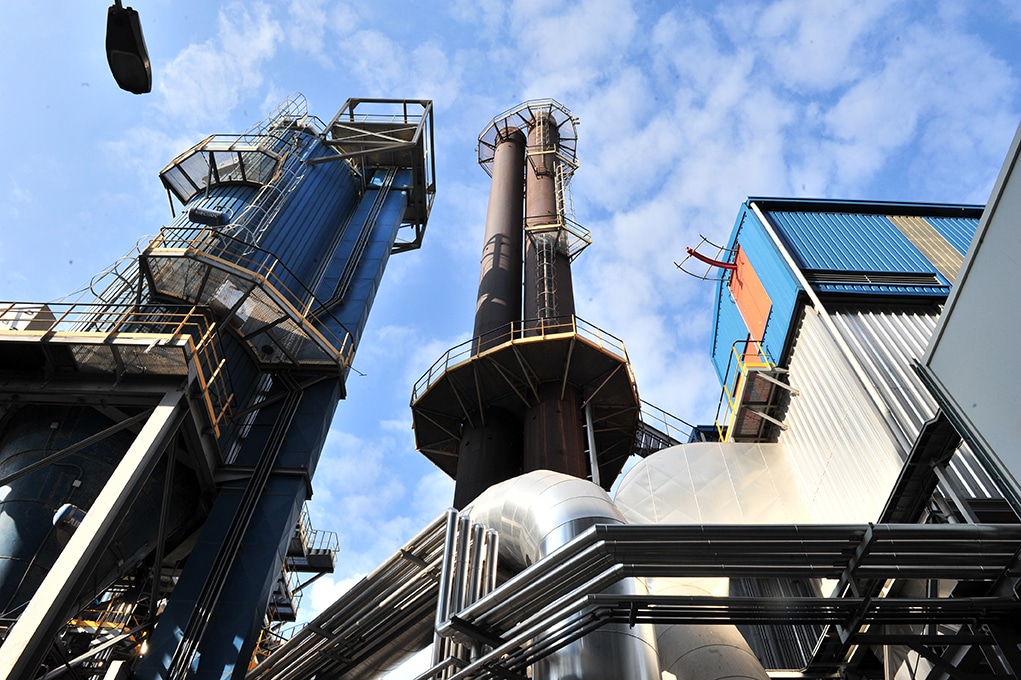The expectation that the Peregrine Falcon will end up breeding in Maresme is of value for the fauna of the region, since it would add a new species at this time of loss of biodiversity
Maresme Circular, the brand of the Maresme Waste Consortium, and the Triops Divulgació Association have installed a nesting box on the chimney of the incinerator of the Maresme Integrated Waste Recovery Centre in Mataró to facilitate the breeding of the peregrine falcon.

Installation of the nesting box on the chimney of the incinerator of the Maresme Integral Centre for Waste Recovery / Triops Divulgació
The Peregrine Falcon (Falco peregrinus) is a rare species of bird of prey with a high conservation value which returned to Barcelona more than two decades ago after becoming extinct in the region during the 1970s, and which in recent years has been spreading throughout the metropolitan area.
Tall buildings and structures, such as the incinerator’s 45-metre-high chimney, are ideal for nesting. In addition, the incinerator is located in an open space with an abundant population of pigeons, the most common prey in the Peregrine’s diet, which would also help the potential breeding of this species.
The expectation that the falcon will end up breeding in the Maresme is of value for the fauna of the region, since it would add a new species at this time of biodiversity loss; something that is in line with the Sustainable Development Goals (SDG #15) of the 2030 Agenda. In addition, it could also be key to the biological control of some pests, as falcons feed on pigeons, turtle doves and parrots.
In this way, Maresme Circular is committed to creating a conservation area for this species, providing a tool for biodiversity in the region.

Installation of the nesting box on the chimney of the incinerator of the Maresme Integrated Waste Recovery Centre / Triops Divulgació
Monitoring of common kestrel pairs
The initiative to install the nest-box came from the Triops Divulgació Association, a non-profit organisation whose aim is to promote knowledge of the natural environment of Catalonia through research, conservation and dissemination of natural heritage and biodiversity, based in Mataró.
The project coordinators are Raül Calderón, Francisco Carbonell, Joan Grajera, Hugo Framis and Pol Romano, five local researchers who in 2019 started a project to monitor breeding pairs of common kestrels (with the marking of individuals with remote reading rings and recording of images in the nests) in Mataró and its surroundings with the support of the Mataró City Council, which has produced very good results.

Chimney of the incinerator of the Centro Integral de Valorización de Residuos del Maresme / Marga Cruz



